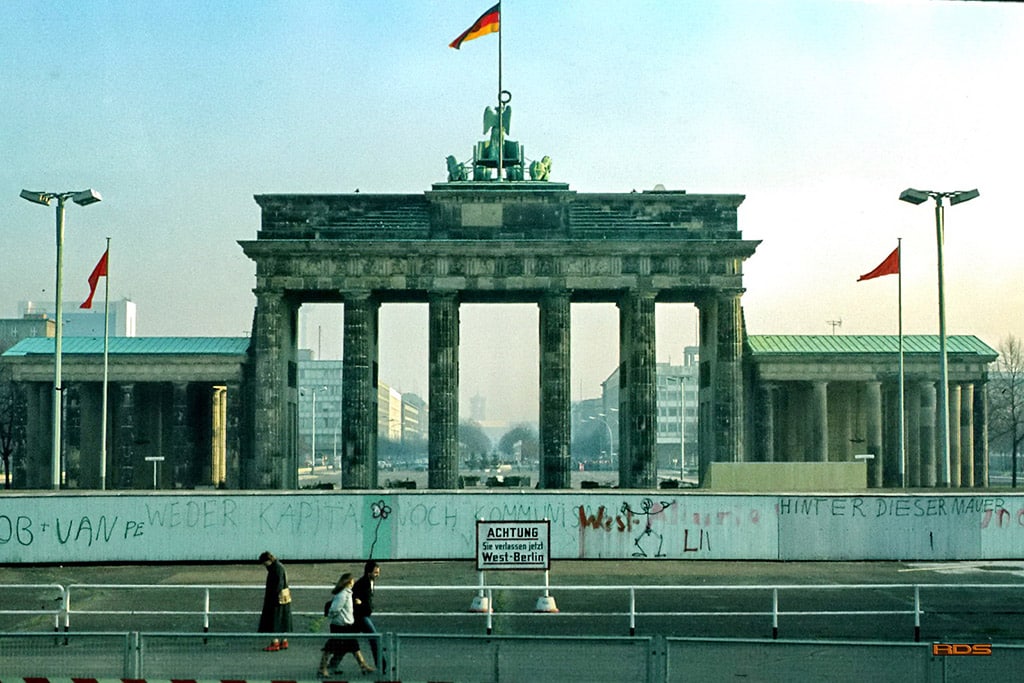
The night of 8 November 1989, 30 years ago, witnessed not only the breaching of a wall, the Berlin Wall (a key element of the Iron curtain), but also the birth of a hope, the hope that freedom and democracy would flourish. Not long afterwards the Soviet Union collapsed, and with it a Cold War that relied on a balance of terror. There was so much hope that Francis Fukuyama, some months before the Wall came down, dared to speculate, along the lines of Hegel as interpreted by Alexandre Kojève, whether history had not reached its conclusion with the universal triumph of the liberal system. This was followed by the invention and development of the Internet and the great explosion of digital communication, which in principle seemed to favour the spread of freedom. Somewhat later, Thomas Friedman claimed that the world had gone back to being flat. But no. New walls have been erected, and this time they are digital.
It is not that physical walls have vanished. Quite the opposite. The walls of globalisation have proliferated in many quarters, this time not to prevent people from leaving, as was in the case of Berlin, but to prevent them from entering, especially in wealthy countries, as well as the wall built by Israel against the Palestinians.
Digital walls start within every one of us; because they enable the creation of echo chambers in our minds that admit only the information, or distortion, we agree with. No question of surprises, or reading, seeing or hearing new ideas. No. Only things that confirm our beliefs or, worse still, our prejudices. ‘Give the people what they want, even if they don’t know they want it’, was the slogan of Roger Ailes, founder of Fox News. It was not necessary to wait for social media or Cambridge Analytica to understand –in the recruitment of jihadists, in the Brexit referendum or in the election of Trump– how easy it would prove to manipulate citizens who have ceased to be citizens, who have become mere users.
In a recent controversial speech Mark Zuckerberg, the CEO and founder of Facebook, acknowledged the online ‘erosion of truth’, while simultaneously defending the rules of his social network –and the first amendment to the US constitution, guaranteeing freedom of expression– that enable politicians, including Trump, to use it to lie. He called for regulation, but also wanted governments to resist the temptation to curb freedom of expression, which naturally includes the freedom to knowingly spread falsehoods. The business model upon which social media and other aspects of the digital economy are based revolves around users’ attention. And in order to attract this it is necessary to stoke up indignation, radicalism and falsehoods.
But unless we can ensure that people differentiate between what is true and what is false, it is not authoritarian but rather democratic regimes that will be hit. There are no viable tools as yet, but they must be sought, and when found, urgently applied.
Zuckerberg still seems to subscribe to Fukuyama’s (since revised) thesis, but this time revolving around a self-organised civil society with social media: ‘People having the power to express themselves at scale is a new kind of force in the world: a Fifth Estate alongside the other power structures of society’. We are seeing this every day, for good and ill. ‘People’, Zuckerberg went on, ‘no longer have to rely on traditional gatekeepers in politics or media to make their voices heard, and that has important consequences. I understand the concerns about how tech platforms have centralised power’, he added, ‘but I actually believe the much bigger story is how much these platforms have decentralised power by putting it directly into people’s hands. It’s part of this amazing expansion of voice through law, culture and technology’.
Some authoritarian regimes have discovered how to control their citizens using the new technology, including social media and personal data. Although there is still a single Internet (for how much longer?), authoritarian regimes want to control what takes place on the network, and in other communication channels within their territories, which they view as an immense source of user-generated information. They limit access to the outside world by using firewalls, as in China. Other systems of control, like social credit and facial recognition –deployed against the Muslim Uyghurs in Xinjiang–, have seen the birth of what Alina Polyakova and Chris Meserole have dubbed ‘digital authoritarianism’, which, while not exporting its ideology, does export its methods and technology. In some ways it goes even further than George Orwell’s Nineteen Eighty-Four. The list of such regimes is growing, with China being joined by Russia, Turkey, Egypt and, to some extent, India. Beijing has even managed to censor news and comments about the protests in Hong Kong among Western users of the (Chinese) TikTok app, which has become so popular among young people.
Let it not be thought that in the West –if it may still be called that– we are trailing far behind. Edward Snowden revealed with his leaks the scope of the surveillance carried out by the US, including on its allies. London has almost as many CCTV cameras as Beijing (and many more per head of population), partly as a result of the fight against terrorism, although once such capabilities are deployed it is very difficult to restrict their use. Western companies collaborate in Chinese surveillance, although the Trump Administration has now punished eight cutting-edge companies in AI and facial recognition in that country for the repression in Xinjiang (at the same time helping him to slow China’s technological development). According to a recent report from the Carnegie Endowment for International Peace, 75 of the 175 countries studied around the world actively use AI technologies for surveillance purposes. A ‘surveillance capitalism’, as Shoshana Zuboff calls it, has also been constructed by large corporations. Its purposes are not the same as techno-authoritarian states, but digital barriers are starting to proliferate.
Digital walls are far more subtle than their physical counterparts. They cannot be seen, but they are becoming increasingly impenetrable.


